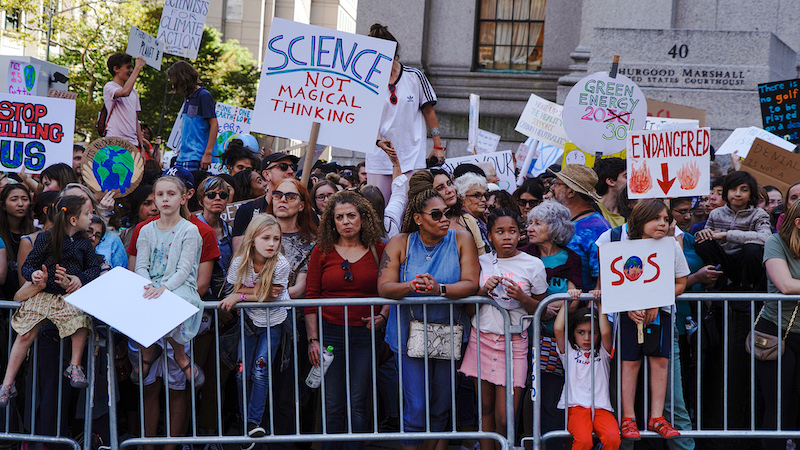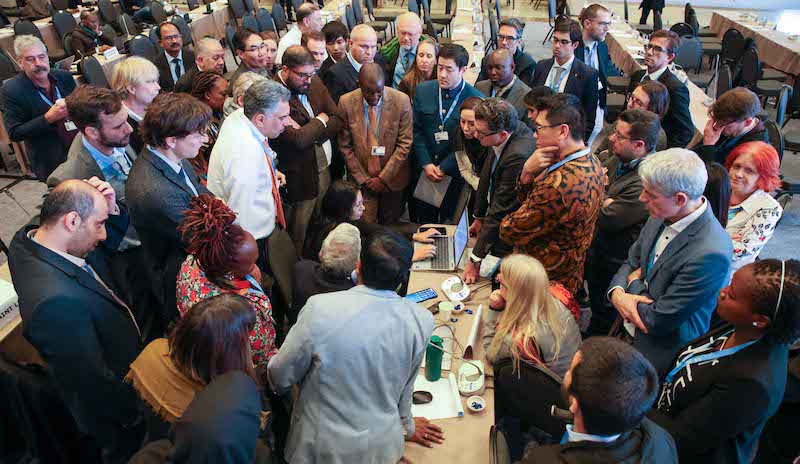Saudi, India and China led opposition against a proposal to link the IPCC’s assessment cycle with the global stocktake, sources told Climate Home.
Governments have failed to agree on a timeline for the delivery of highly influential scientific reports assessing the state of climate change by the United Nations’ Intergovernmental Panel on Climate Change (IPCC).
That is after Saudi Arabia, India and China opposed attempts to ensure the scientific body would provide its assessment in time for the next global stocktake, the UN’s scorecard of collective climate action, due in 2028, according to sources present at the IPCC talks in Istanbul, Turkiye, last week.
Following “fraught” discussions that ran all night Friday, governments postponed a final decision on the timeline until the next meeting scheduled in the summer.
How fossil fuels went from sidelines to headlines in climate talks
Swiss climate scientist Sonia Seneviratne, who is the vice chair of an IPCC working group, said she “was not totally surprised” to see opposition to the proposal.
“We know that some countries do not necessarily want climate policy to advance very fast and IPCC information will be critical for informing the global stocktake”, she added. “But I was surprised by the lack of willingness to even negotiate on these points”.
The findings of previous IPCC reports played a prominent role in informing the first global stocktake, which resulted in governments agreeing for the first time to begin “transitioning away from fossil fuels” at Cop28 last December.
Timeline disagreement
The IPCC met last week to decide the work programme for its seventh assessment cycle, which officially started in July 2023 with the election of its new chair Jim Skea.
Ahead of the talks, the UNFCCC officially requested that the scientific body align its activities with the timeline of the next global stocktake. The IPCC input would be “invaluable” for the scoring exercise, Simon Stiell, chief of the UN climate body, said.
Azerbaijan appoints fossil fuel execs and scandal-hit officials to all-male Cop29 committee
But sticking to a 2028 deadline would mean either fast-tracking its work or shortening the IPCC’s entire cycle from seven years down to five years. Small island nations, least developed countries and some rich countries favoured this option, sources told Climate Home.
But a group of governments, led by Saudi Arabia, India and China, argued the accelerated programme would force to complete the scientific process “in a hurry” and would not leave enough time for developing countries to review the output, according to sources.
Speed and quality
Mohamed Nasr, Egypt’s chief climate negotiator, told Climate Home that he was not opposed to the principle of IPCC producing reports in time for the global stocktake but only if “we are not rushing science to deliver in a short timeline”.
“The question is ‘can you provide the same level of quality in 2028 or not?’”, he added. “Otherwise, the credibility of the IPCC would come under question”.
The IPCC normally publishes its reports every five to seven years and three scientists involved in its activities told Climate Home it is entirely possible to conclude its next round of assessments by 2028.
“Linking the assessment cycle to the global stocktake makes a lot of sense to me”, said Richard Klein, a senior researcher at SEI and a lead author of previous IPCC reports. “It is the gold standard of everything to do with climate science and the IPCC was explicitly set up to inform climate policy, including the UNFCCC’s processes”.
Eleventh-hour compromise
The issue caused major divisions between governments throughout the meeting, which “teetered on the brink of failure on Saturday morning”, according to a summary of discussions by the IISD’s Earth Negotiations Bulletin. The lack of consensus led to “IPCC Chair Jim Skea half-jokingly warning that the time to leave the venue was near and further consultations would shortly have to be held on the street”, the report added.
Read More


